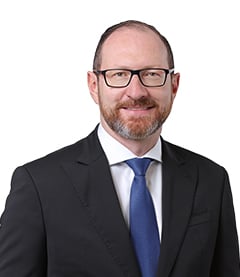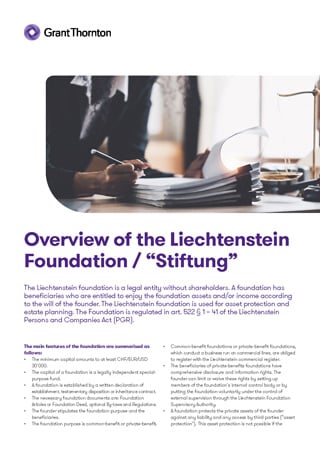Services
More security, more trust.
-
Audit Industry, Services, Institutions
More security, more trust: Audit services for national and international business clients
-
Audit Financial Services
More security, more trust: Audit services for banks and other financial companies
Competent advice on all national and international tax issues.
-
Corporate Tax
National and international tax consulting and planning
-
Individual Tax
Individual Tax
-
Indirect Tax/VAT
Our services in the area of value-added tax
-
Transfer Pricing
Our transfer pricing services.
-
M&A Tax
Advice throughout the transaction and deal cycle
-
Tax Financial Services
Our tax services for financial service providers.
Good advice makes things easier.
-
Advisory IT & Digitalisation
Generating security with IT.
-
Forensic Services
Nowadays, the investigation of criminal offences in companies increasingly involves digital data and entire IT systems.
-
Regulatory & Compliance Financial Services
Advisory services in financial market law and sustainable finance.
-
Mergers & Acquisitions / Transaction Services
Successfully handling transactions with good advice.
-
Legal Services
Experts in commercial law.
-
Trust Services
We are there for you.
-
Business Risk Services
Sustainable growth for your company.
-
IFRS Services
Die Rechnungslegung nach den International Financial Reporting Standards (IFRS) und die Finanzberichterstattung stehen ständig vor neuen Herausforderungen durch Gesetzgeber, Regulierungsbehörden und Gremien. Einige IFRS-Rechnungslegungsthemen sind so komplex, dass sie generell schwer zu handhaben sind.
External services that free up space for what is really important.
-
Abacus
Grant Thornton Switzerland Liechtenstein has been an official sales partner of Abacus Business Software since 2020.
-
Accounting Services
We keep accounts for you.
-
Payroll Services
Leave your payroll accounting to us.
-
Real Estate Management
Leave the management of your real estate to us.
With our unique culture and opportunities, our organisation is a place where you can grow. Wherever you are in your career, we help you to make a difference...
With us you will find a dynamic environment that supports your further growth and ambitions.
Launch your career with us!
-
Apprentices
Career with an apprenticeship?!
Job offers for experienced professionals.
Our treatment of your data and your rights
Information pursuant to Article 13 of the European General Data Protection Regulation (GDPR) and the Liechtenstein...
Vacancies

The Liechtenstein foundation is a legal entity without shareholders. A foundation has beneficiaries who are entitled to enjoy the foundation assets and/or income according to the will of the founder. The Liechtenstein foundation is used for asset protection and estate planning. The Foundation is regulated in art. 522 § 1 – 41 of the Liechtenstein Persons and Companies Act (PGR).
The main features of the foundation are summarised as follows:
- The minimum capital amounts to at least CHF/EUR/USD 30’000.
- The capital of a foundation is a legally independent special-purpose fund.
- A foundation is established by a written declaration of establishment, testamentary disposition or inheritance contract.
- The necessary foundation documents are: Foundation Articles or Foundation Deed, optional By-laws and Regulations.
- The founder stipulates the foundation purpose and the beneficiaries.
- The foundation purpose is common-benefit or private-benefit.
- Common-benefit foundations or private-benefit foundations, which conduct a business run on commercial lines, are obliged to register with the Liechtenstein commercial register.
- The beneficiaries of private-benefits foundations have comprehensive disclosure and information rights. The founder can limit or waive these rights by setting up members of the foundation’s internal control body or by putting the foundation voluntarily under the control of external supervision through the Liechtenstein Foundation Supervisory Authority.
- A foundation protects the private assets of the founder against any liability and any access by third parties (“asset protection”). This asset protection is not possible if the founder acts as if the assets were still part of his assets and reserves excessive founder rights (“controlled foundation”). The founder can be a member of the foundation council or of another executive body. He can also be a beneficiary of the Foundation. The founder can reserve the right to revocation, to amend the foundation articles or to appoint and remove the members of the foundation council whereas this could be considered as controlled foundation.
- The founder may specify in the Foundation Articles that a control body can be established to verify once a year if the assets of the Foundation are managed and distributed in accordance with the foundation purpose.
- The only mandatory executive body is the foundation council.
- The foundation council must consist of at least two members (individuals or legal entities, domiciled in Liechtenstein or abroad). At least one foundation council member must either be a Liechtenstein trustee or a person with similar status.
- The foundation council manages the business of the Foundation and represents it. It is responsible for the fulfilment of the foundation purpose.
- The liability of the foundation council is codified by the “business judgement rule”: A member of the administration is deemed to act diligently if in his commercial decision-making he is not governed by irrelevant interests and it must reasonably be assumed that he is acting for the good of the legal entity on the basis of appropriate information.
- A beneficiary is a natural person or legal entity that with or without valuable consideration in fact, unconditionally or subject to certain prerequisites or conditions, for a limited or unlimited period, with or without restrictions, revocably or irrevocably, at any time during the legal existence of the foundation or on its termination derives or may derive an economic benefit from the foundation (“beneficial interest”).
- There are four categories of beneficiaries:
-
- Entitled beneficiaries: They have a legal claim to benefit, to a specified or specifiable extent, from the foundation assets or the foundation income.
- Prospective beneficiaries: They have a legal entitlement to be appointed at a later date as a successor to an entitled beneficiary.
- Discretionary beneficiaries: A possible beneficial interest is placed in the discretion of the foundation council or another body (no legal claim).
- Ultimate beneficiaries: They are intended to receive the remaining assets following the liquidation of the Foundation.
- The foundation is terminated when it has fulfilled its purpose or when it is not possible to fulfil the purpose anymore, because of for example bankruptcy proceedings in relation to the foundation assets, a court order or a decision in favour of dissolution by the foundation council.
A brief overview of fiscal aspects of a foundation:
- Foundations are generally subject to unlimited corporate income tax at a flat rate of 12.5%. However, the Liechtenstein tax law provides for several exemptions: Amongst others, dividends and capital gains from the sale of shares are tax exempt, as well as income from real estate and permanent establishments which are located abroad. Additionally, a notional interest deduction of currently 4% on the company’s equity (after adjustments for tax purposes) is granted. Therefore, the effective tax rate is for most foundations less than 12.5%.
- If a legal person does not carry out economic activities and serves the private asset management of an individual (or a family), it may apply for the status of a Private Asset Structure (PAS). If the Liechtenstein tax authority approves the application, the legal person is only liable to minimum tax, which currently amounts to CHF 1’800.


